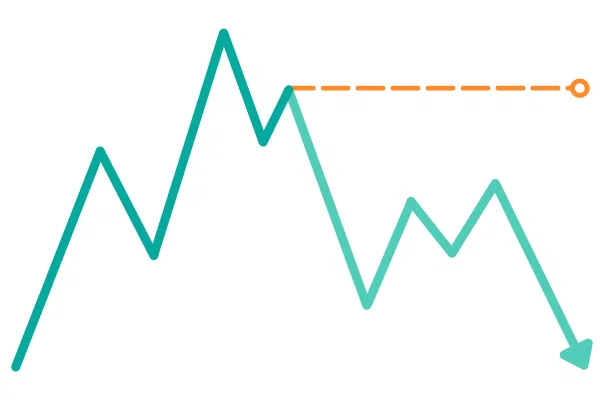2-minute read
One person's hedge is another's bet: in the world of currency risk management, the decision whether to hedge or not is a complex one but, more often than not the financial instrument used for business FX hedging is a forward contract. In this short article, we'll delve into forward contracts, understanding their nature, applications, and importance in managing currency risk.
What is an FX Forward Contract?
Among the various tools and strategies employed in business currency risk management, the FX forward contract holds a significant place. A forward contract is an agreement to buy or sell one currency for another at an agreed rate and at an agreed future date.
They're used by many different people and organisations for different reasons but, here are three scenarios you'll probably be familiar with:
- Businesses trading internationally: Companies that import or export goods and services often use forward contracts to lock in exchange rates for future transactions, mitigating the impact of unfavourable rate movements.
- International investors: Investors with international portfolios might use forward contracts to hedge against adverse currency movements.
- Speculators: Individuals or investment firms aiming to profit from anticipated exchange rate movements might do so by entering into forward contracts.
So, forward contracts allow the buyer to secure exchange rates for future exposures and minimise the impact of currency fluctuations and market volatility. It's worth noting that the exchange rate on a Forward is typically higher or lower than the Spot rate – this is due to the interest rates of the two currencies involved. Read more in our blog post on forward pricing.

Forwards and Futures
You might have come across the term 'future' before. Futures contracts are standardised agreements between two parties to buy/sell a currency for another at a predetermined rate on a specific future date. Futures are exchange-traded and must be traded in a specific size, for example in lots of €125,000 or £62,500 (those are the standard sizes for EUR and GBP respectively on the CME).
Standardisation and being traded on organised exchanges brings benefits to futures contracts but, they suffer a lack of flexibility (in size and in contract lengths) and accessibility to private individuals or businesses. This is where Forward Contracts come in...
Forward Contracts are private agreements (not exchange-traded) and are therefore regarded as "Over-The-Counter" (OTC) products. The agreements can be in nearly any size and for nearly any future date – by the way, the non-standard dates are usually called 'odd dates' but, I've always called them 'cock dates', which is a London thing.
Margin, Deposit, and Credit
An important point to remember is that a Forward Contract is basically a buy-now, pay-later arrangement. You don't need to stump up the full settlement amount of cash at the time of trading, only on the settlement date.
To enter into a Forward Contract, you will likely have to post cash as collateral against the contract. This collateral is called "Initial Margin" although, you might see this described as a "deposit" in some places (which is sort-of-right, sort-of-wrong).
Throughout the lifecycle of a forward contract, you might be asked to settle more collateral (margin) in a process called a "Margin Call". You can read more about this here: https://okumarkets.com/blog/mtm-margin-calls
Sometimes and, depending on a credit assessment, a business might not be required to settle an initial margin if they are provided with a credit facility. Ask us for more details if this is of interest to you!
Typical Use Cases for Forward Contracts
Here are the most common uses that we come across every day:
- Purchase or sale of a property or high-value asset (private clients, usually)
- Hedge the cost of imported goods (importing businesses)
- Hedge the revenue on export sales of goods or services (exporters, duh)
- Hedging overseas salaries and office costs
- Hedging the repayment value of a loan in a foreign currency
- Hedging the value of an overseas asset (for 'balance sheet hedging')
You get the idea...
Need our help?
We're proud to work transparently with our clients, and we work hard to break the asymmetry of knowledge and information in the FX market.
You can contact us for a review of your currency processes and for our guidance and suggestions at info@okumarkets.com or 0203 838 0250.
Thanks for reading 👋
Frequently Asked Questions
1. How long is a forward contract with FX?
The length of an FX forward contract varies based on the parties involved, typically ranging from days to a year or more (we can trade up to five years!).
2. What is the difference between FX forward and FX swap?
An FX forward locks in a future exchange rate in one direction (you buy one currency and sell another), while an FX swap combines two trades, usually a Spot and a Forward, with the far leg reversing the trade direction (the currency cash flows) of the near leg.
3. What is an example of an FX forward?
A UK company is buying a crane from an Irish company in euros. The purchase cost is €3 million and, they enter an agreement to buy the euros in advance, for settlement in six months' time at a fixed exchange rate, protecting against depreciation in the pound against the euro.
4. Are FX forwards risky?
It depends what you're using them for but, any financial derivative carries a degree of risk and, you should be aware of the risks to you or your business before proceeding.
5. Why do we use forward FX?
Forward FX contracts manage currency risk by securing future exchange rates, reducing uncertainty for businesses and investors.
6. Is an FX forward contract a derivative?
Yes, an FX forward contract is a type of derivative. Derivatives derive value from underlying assets like currencies, commodities, or securities.

